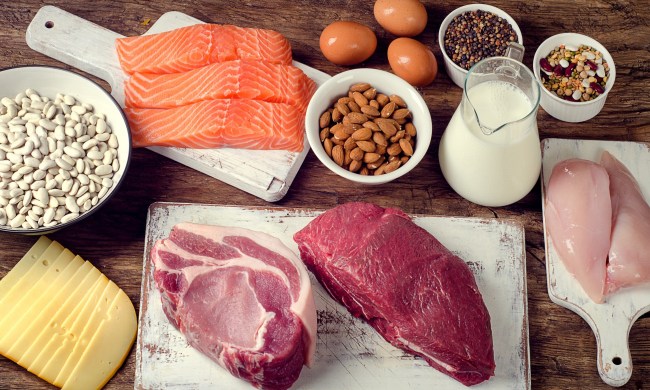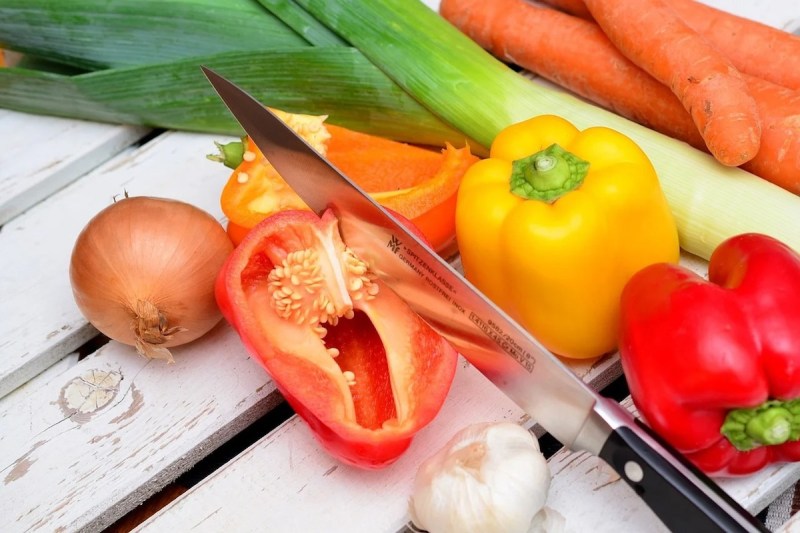
Most of us know that vitamin A is good for us, helping our eyes function at their very best. But there are plenty of other benefits as well, from dealing with inflammation and promoting healthy skin cells, keeping cancer at bay, and giving an assist to the immune system. Not enough? Well, vitamin A is good for your bones, too.
Think of vitamin A as a two-pronged essential nutrient. There’s preformed vitamin A found in things like fish and carotenoids, which tend to show up in produce and plant-based foods. What’s the best way to get your daily intake (an estimated 900 mcg for the average man)? A well-balanced diet, of course. But there are some foods high in vitamin A that are worth targeting the next time you’re at the farmer’s market or grocery store to keep your eyes, skin, immune system, and hormones functioning optimally.
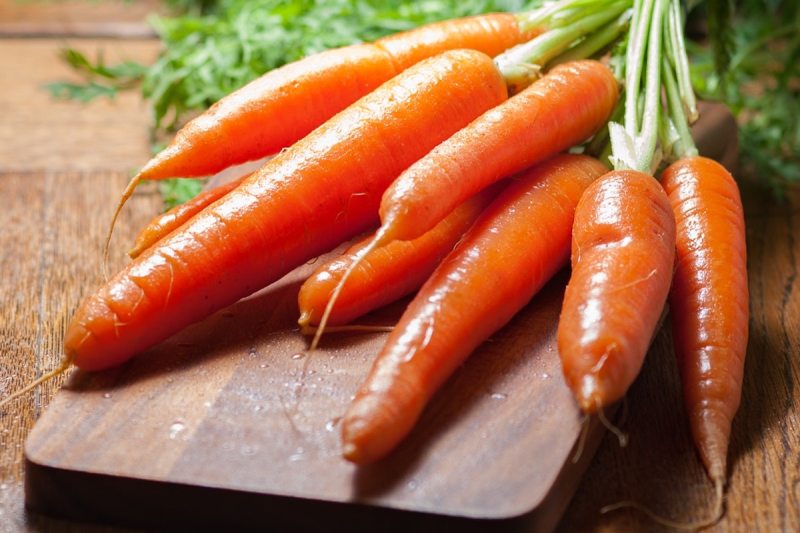
Foods high in Vitamin A
Carrots
Carrots are certainly one of the most popular root vegetables. As a root vegetable, this sweet, versatile veggie stores nutrients for the plant, so carrots are rich in minerals like potassium, as well as vitamins A, C, and K. A single medium-sized carrot contains about 45% of the daily value of vitamin A, while one cup of cooked carrots is packed with 1,329 mcg, which is approximately 1.5 times the daily value.
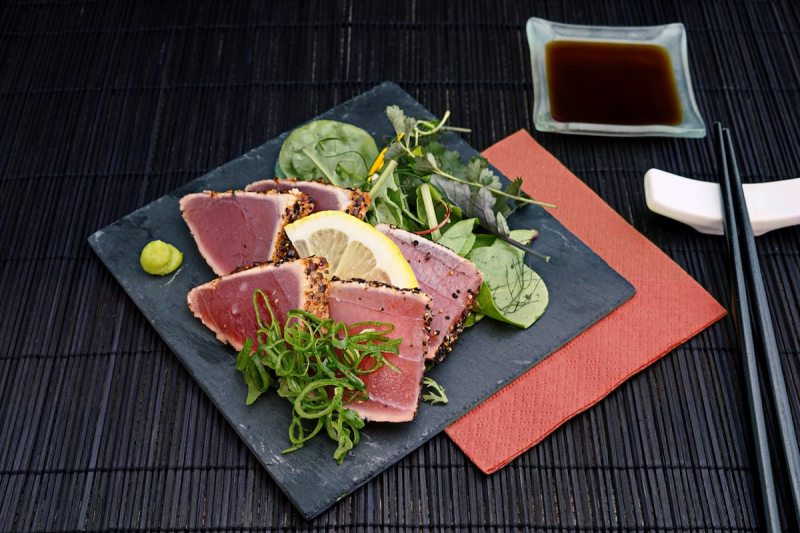
Tuna
Preformed vitamin A is high in certain animal products, with fresh tuna being one of the best sources. A six-ounce filet has 1,287 mcg, which is 143% of the daily value. Tuna is also high in vitamin E, protein, selenium, magnesium, biotin, and vitamin B12, among other essential nutrients. Other fish and shellfish high in vitamin A include eel, clams, and mackerel.
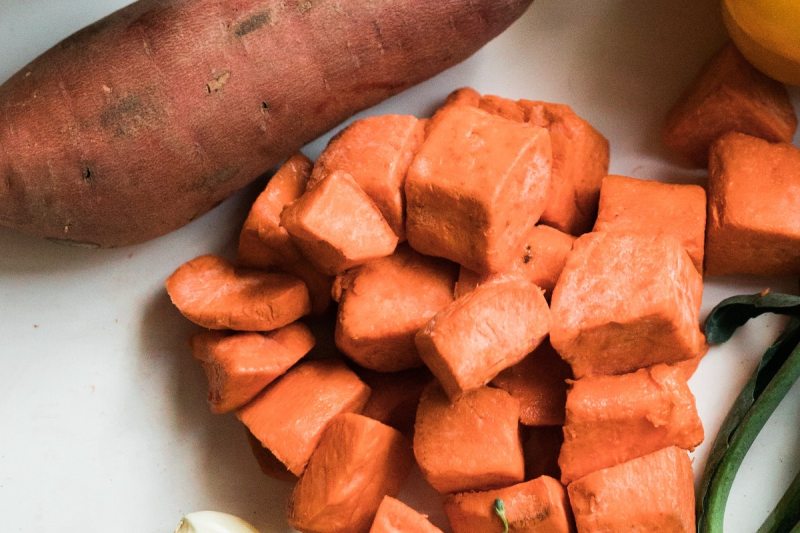
Sweet potatoes
You’ll enjoy many health benefits from eating sweet potatoes, many of which are a product of their high beta-carotene content. Sweet potatoes can support eyesight, your immune system, and due to the complex carbohydrates and prebiotic fibers, they may also help balance blood sugar and reduce insulin secretion. A medium-sized baked sweet potato will give you nearly 125% of the daily value of vitamin A, along with lots of vitamin C and some potassium.
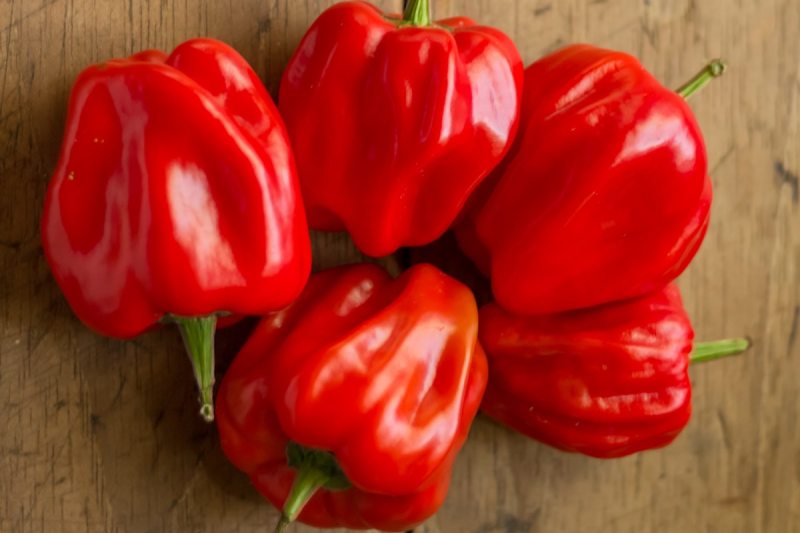
Red peppers
The nutrient content of sweet bell peppers varies based on their color. The red and orange bell peppers are particularly nutritious due to their antioxidant content. Red bell peppers are one of the foods highest in vitamin C. For example, one cup of red pepper provides 190 mg (212% RDI) of vitamin C, while for comparison, a cup of orange slices has 96 mg. Moreover, one medium sweet red pepper provides nearly 2 mg of vitamin E (14% DV) and 198 mcg (22 DV) of vitamin E. In contrast, a green bell pepper has a negligible amount of vitamin A.
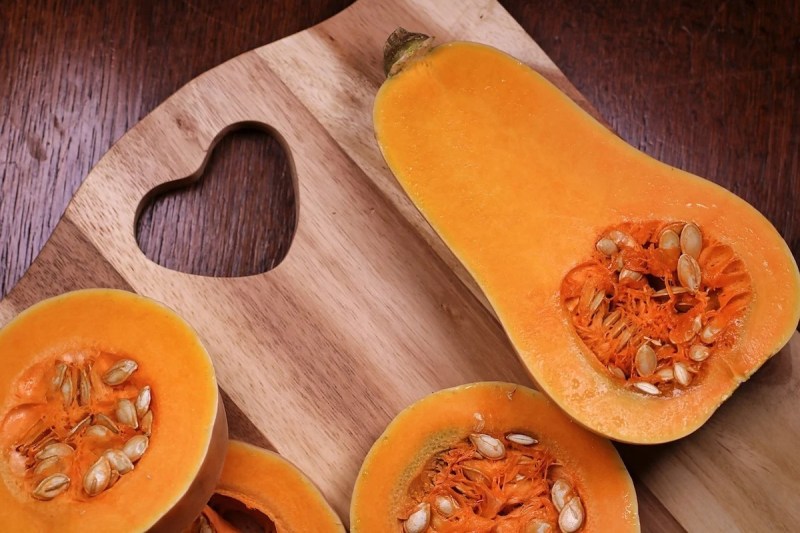
Butternut squash
Butternut squash and other winter squash like acorn squash, hubbard squash, and beach squash, as well as pumpkin, are rich in vitamin A. The bright orange color of these sweet, fleshy fruits is due to beta-carotene, an antioxidant that’s converted to vitamin A in the body. One cup of canned pumpkin has over two times the daily value of vitamin A, and a cup of cooked butternut squash has 127% of the daily value, providing 1,144 mcg.
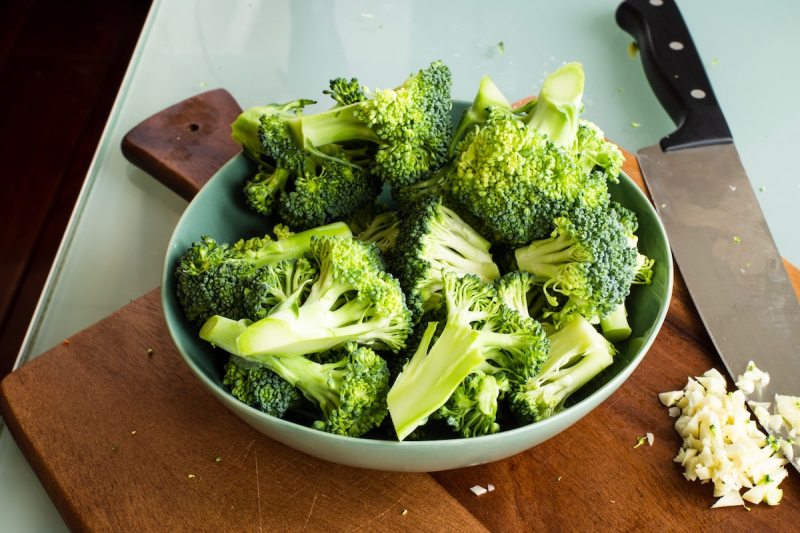
Broccoli
It seems there are very few lists of the healthiest foods these days that don’t include broccoli. From fiber to vitamin C, vitamin K to vitamin A to biotin, this cruciferous veggie is a disease-fighting superfood. Broccoli is also relatively high in vitamin A, with 120 mcg per cup.
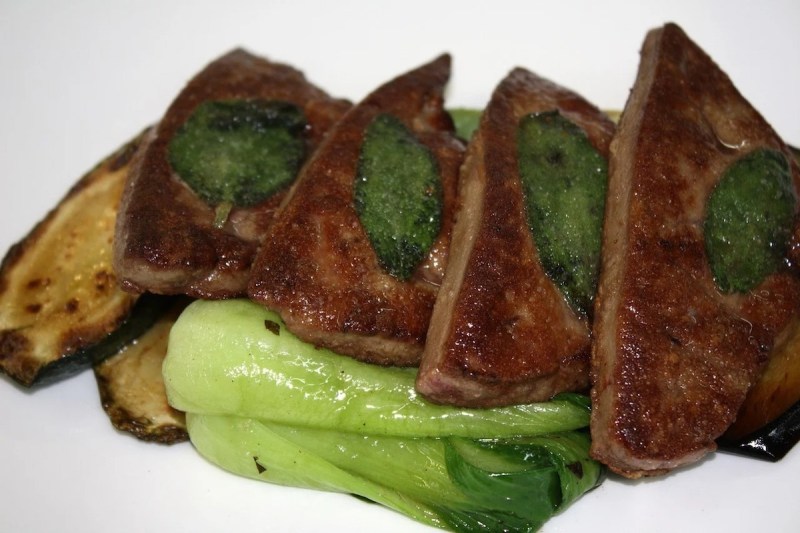
Liver
Liver is certainly one of the most concentrated sources of vitamin A, along with nutrients like vitamin D, iron, and vitamin B12, a vitamin critical for energy production. One slice of beef liver has an incredible 700% of the daily value of vitamin A. Lamb liver is much less, but still has over two times the daily value. Liver sausage, cod liver oil, and goose liver pâté are also high in vitamin A.
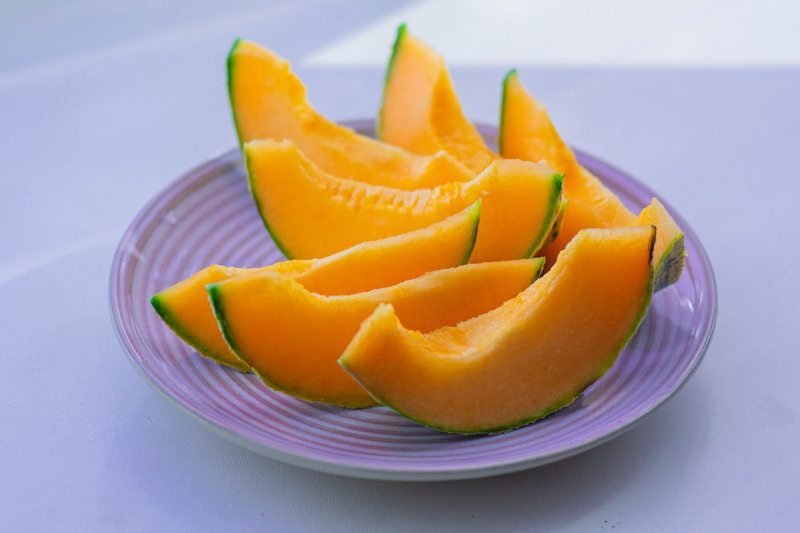
Cantaloupe
Since many of the foods highest in vitamin A are orange, it may come as no surprise that cantaloupe melon is rich in vitamin A. This juicy, delicate-fleshed fruit has about one-third of the daily value of vitamin A per cup. Mango, another bright orange fruit, has a similar level and is also an excellent source of vitamin E, which is vital for skin, hair, and cardiovascular health.
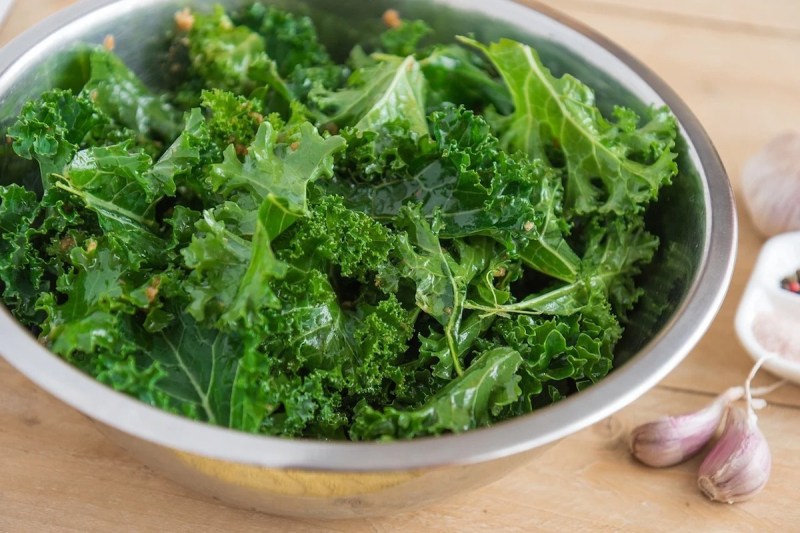
Kale
Dark leafy greens are one of the best sources of vitamin K, a fat-soluble vitamin crucial for normal blood clotting. Kale, spinach, collard greens, turnip greens, beet greens, Swiss chard, and other leafy greens are also packed with iron, calcium, potassium, and vitamin A. A cup of cooked kale has 885 mcg (98% DV) of vitamin A, and spinach, collards, turnip greens, and mustard greens are all similar. Drizzle your greens with healthy oil or enjoy them with nuts or seeds to pair them with fats that will aid the absorption of the fat-soluble vitamins they contain.
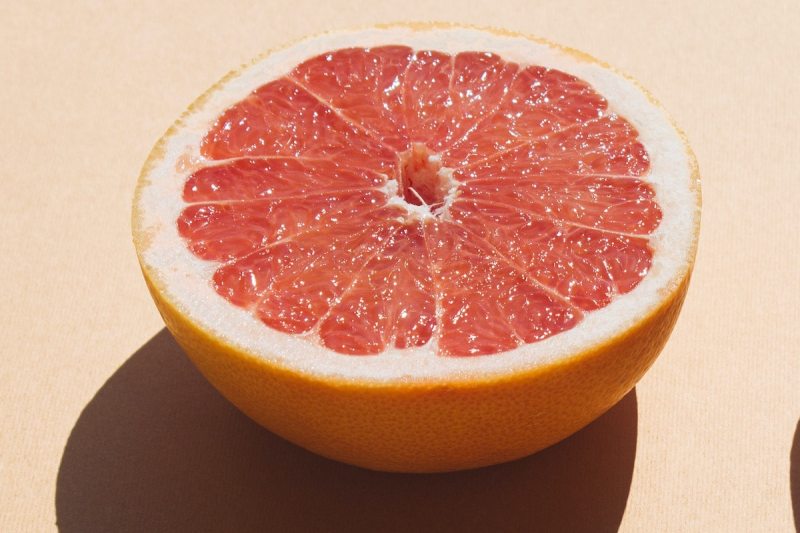
Grapefruit
Starting your day off with a half grapefruit used to be a common piece of nutritional wisdom, and we’d do well to adopt that practice again. Not only is this tart fruit packed with immune-supportive vitamin C, but it’s also a decent source of vitamin A. One cup has about 15% of the daily value. As with bell peppers, color matters here as well, though. Pink grapefruit has approximately 30 times more vitamin A than white grapefruit.
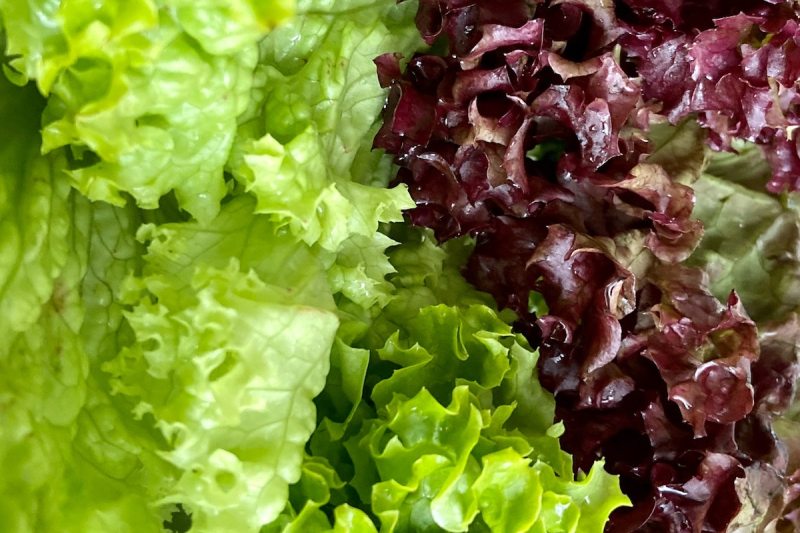
Lettuce
While dark leafy greens will give you a much more potent vitamin A punch, lettuce is also a good option. There are about 200 mcg of vitamin A per cup of lettuce, with higher levels in Romaine lettuce leaves with red pigments. Because lettuce contains very few calories, per calorie, it’s one of the best sources of vitamin A, as there is 570% of the daily value per 200-calorie portion.
With these foods on your shopping list, you’re bound to treat your body to a healthy dose of vitamin A. En route, you’re likely to keep your vision sharp and your skin healthy. That, and you’ll be eating a diverse lineup of ingredients with tons of other positive benefits, too.

Drink your way to more vitamin A
Now that we’ve discussed the foods that are high in vitamin A, we want to share a quick and healthy way to give yourself a vitamin A boost with this simple vitamin A juice recipe from The Spruce Eats. This juice recipe combines several foods high in vitamin A for a refreshing and delicious juice that packs a nutritional punch.
Ingredients
- 1 red bell pepper
- 4 carrots
- 4 spinach leaves
- 1 whole tomato
- 1 slice of fresh ginger
Method
- Place all the ingredients into a blender.
- Blend well until the mixture reaches your preferred consistency (times will vary).
- Pour into a glass and serve.

